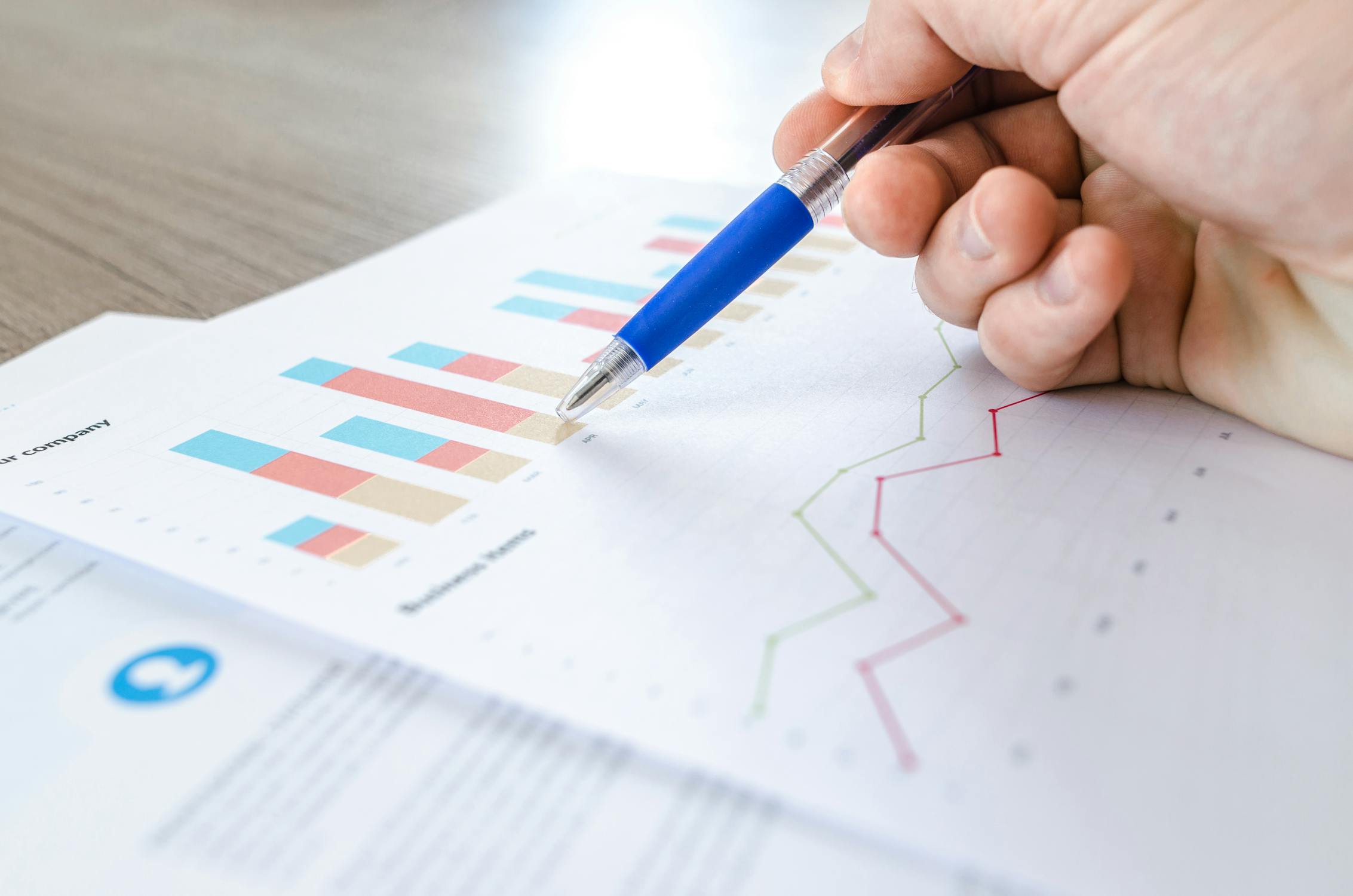What Does a Data Person Do?

In today's data-driven world, "data people" have become essential across industries. These professionals transform raw information into valuable insights that drive decision-making and innovation. But what exactly does a data person do? This article explores the diverse roles, responsibilities, and skills of data professionals in the modern business landscape.
The Evolving Landscape of Data Roles
The term "data person" encompasses a wide range of specialized roles that have emerged as data has become central to business operations. While these roles share a common foundation in data literacy, each has unique responsibilities, technical requirements, and business functions. Understanding these distinctions is essential for organizations looking to build effective data teams and for professionals navigating career paths in this dynamic field.
Data professionals serve as translators between raw information and actionable insights, applying technical expertise, analytical thinking, and domain knowledge to extract meaning from complexity. Their work spans the entire data lifecycle, from collection and storage to analysis and visualization.
Key Data Professional Roles
Data Analyst
Data analysts form the backbone of many data teams, focusing on transforming raw data into meaningful business insights through descriptive analytics. Their day-to-day responsibilities typically include:
- Collecting and cleaning data from various sources
- Performing exploratory data analysis to identify patterns and trends
- Creating visualizations and dashboards to communicate findings
- Generating regular reports for stakeholders
- Supporting data-driven decision-making across departments
Data analysts primarily work with historical data to answer questions about what happened in the past and why. They typically use tools like SQL, Excel, Python, R, and visualization platforms like Tableau or Power BI. This role often serves as an entry point for data careers and requires strong analytical thinking, attention to detail, and communication skills.
Data Scientist
Data scientists extend beyond descriptive analytics into the realm of predictive and prescriptive analytics. They combine statistics, mathematics, and programming expertise to build models that predict future outcomes or recommend optimal courses of action. Their core responsibilities include:
- Developing statistical models and machine learning algorithms
- Designing experiments to test hypotheses
- Extracting insights from large and complex datasets
- Creating predictive models to forecast trends and behaviors
- Translating technical findings into business recommendations
This role typically requires advanced statistical knowledge, proficiency in programming languages like Python or R, experience with machine learning frameworks, and strong problem-solving abilities. Data scientists need to balance technical expertise with business acumen to ensure their work delivers meaningful value.
Data Engineer
While analysts and scientists focus on deriving insights from data, data engineers build and maintain the infrastructure that makes this analysis possible. They design systems to collect, store, and process data at scale, ensuring that information flows smoothly throughout an organization. Their responsibilities typically include:
- Building and optimizing data pipelines
- Developing and maintaining databases and data warehouses
- Ensuring data quality, accuracy, and accessibility
- Implementing data governance and security measures
- Collaborating with analysts and scientists to support their data needs
Data engineers need strong programming skills, expertise in database systems, and knowledge of distributed computing frameworks like Hadoop or Spark. They often work with cloud platforms and containerization technologies to create scalable, resilient data infrastructure.
Emerging Specialized Data Roles
- Machine Learning Engineer: Focuses on deploying machine learning models into production environments and optimizing their performance
- Data Architect: Designs comprehensive data management systems and policies to align with business objectives
- Data Governance Specialist: Ensures data quality, compliance, and appropriate use across an organization
- AI Ethics Specialist: Addresses ethical considerations in data collection, algorithm design, and implementation
- Analytics Translator: Bridges the gap between technical data teams and business stakeholders
The Data Workflow: How Data Professionals Collaborate
In a well-functioning data organization, these various roles form an interconnected ecosystem, each contributing to a seamless flow from raw data to business value. A typical workflow might look like this:
- Data engineers build pipelines to collect data from various sources and ensure it's properly stored and accessible.
- Data analysts explore this data to identify patterns and create dashboards for regular business monitoring.
- Data scientists develop models based on the prepared data to predict future trends or optimize decisions.
- ML engineers deploy these models into production systems where they can deliver ongoing value.
- Analytics translators help business users understand and apply the insights generated.
This collaborative approach ensures that organizations can fully leverage their data assets, with each specialist contributing their unique expertise to the overall process.
Essential Skills for Data Professionals
While specific technical requirements vary by role, successful data professionals share several core competencies:
Technical Skills
- Programming: Proficiency in languages like Python, R, or SQL for data manipulation and analysis
- Statistical analysis: Understanding of statistical concepts and methods for extracting meaningful patterns
- Data visualization: Ability to create clear, compelling visual representations of data
- Database systems: Knowledge of various data storage solutions and query optimization
- Machine learning: Familiarity with algorithms and frameworks for predictive modeling (for data scientists)
- Cloud computing: Experience with platforms like AWS, Google Cloud, or Azure for scalable data processing
Soft Skills
- Critical thinking: Ability to approach problems methodically and evaluate information objectively
- Communication: Skill in translating technical concepts for non-technical audiences
- Business acumen: Understanding of how data insights connect to organizational goals
- Curiosity: Natural inquisitiveness and desire to explore data beyond surface-level patterns
- Adaptability: Willingness to learn new tools and techniques as the field evolves
- Ethical awareness: Recognition of privacy, bias, and ethical considerations in data work
The most successful data professionals combine technical expertise with these broader capabilities, allowing them to not just analyze data but to derive and communicate meaningful insights that drive action.
A Day in the Life of Data Professionals
To provide a more concrete understanding of these roles, let's look at how a typical day might unfold for different data professionals:
Data Analyst
A data analyst's day might include:
- Morning: Checking automated reports for anomalies, responding to stakeholder questions about yesterday's metrics
- Midday: Working on a new dashboard to visualize customer acquisition trends, cleaning and preparing data for the analysis
- Afternoon: Meeting with the marketing team to understand their data needs, running analysis on a recent campaign's performance
- End of day: Documenting findings, planning tomorrow's analysis priorities
Data Scientist
A data scientist's schedule might look like:
- Morning: Reviewing recent model performance metrics, adjusting parameters to improve accuracy
- Midday: Researching and implementing a new approach to customer segmentation, experimenting with different algorithms
- Afternoon: Collaborating with product managers to define success metrics for a recommendation engine, designing an A/B testing framework
- End of day: Documenting model architecture decisions, reviewing relevant research papers
Data Engineer
A data engineer might spend their day:
- Morning: Monitoring data pipeline performance, troubleshooting integration issues with a new data source
- Midday: Optimizing database queries to improve dashboard loading times, implementing data quality checks
- Afternoon: Meeting with the data science team to plan infrastructure for a new machine learning project, designing schema changes to support new analytics requirements
- End of day: Reviewing code from team members, updating documentation for data processes
These examples illustrate how each role contributes differently to an organization's data capabilities while maintaining a shared focus on transforming data into value.
Industry Applications and Impacts
Data professionals work across virtually every industry, adapting their skills to different business contexts and challenges:
Financial Services
In finance, data teams develop risk assessment models, detect fraudulent transactions, optimize investment strategies, and personalize customer offerings. Their work helps institutions manage risk, comply with regulations, and identify new revenue opportunities.
Healthcare
Healthcare data professionals analyze patient outcomes, optimize hospital operations, predict disease outbreaks, and develop personalized treatment recommendations. Their insights help improve care quality, reduce costs, and enhance population health management.
Retail and E-commerce
In retail, data teams optimize pricing strategies, personalize marketing campaigns, manage inventory efficiently, and enhance customer experiences across channels. Their work drives sales growth, improves margins, and builds customer loyalty.
Manufacturing
Manufacturing data professionals implement predictive maintenance systems, optimize production processes, manage supply chains, and ensure quality control. Their analyses help reduce downtime, minimize waste, and improve operational efficiency.
Across these diverse contexts, the fundamental approach remains consistent: using data to understand complex systems, identify opportunities for improvement, and drive evidence-based decision-making.
Evolution of Data Roles
The field of data continues to evolve rapidly, shaped by technological advances, changing business needs, and emerging challenges:
Increasing Specialization
As organizations' data capabilities mature, we're seeing greater specialization within the field. Roles are becoming more defined and focused, allowing professionals to develop deeper expertise in specific areas like natural language processing, computer vision, or time series forecasting.
Democratization of Data Skills
At the same time, data skills are becoming more accessible to non-specialists. User-friendly tools and platforms are enabling business users to perform basic analysis independently, shifting the role of dedicated data professionals toward more complex problems and advisory functions.
Ethical and Regulatory Focus
With growing awareness of potential harms from misused data and algorithms, data professionals are increasingly expected to address ethical considerations, ensure regulatory compliance, and build responsible systems. This has created new roles focused specifically on data ethics, governance, and responsible AI.
Integration with Business Strategy
Data roles are becoming more closely integrated with strategic decision-making. Chief Data Officers now sit on executive teams, and data professionals at all levels are expected to understand business contexts and demonstrate the value of their work in business terms.
Conclusion: The Future of Data Professionals
As data continues to grow in volume, variety, and business importance, the role of data professionals will only become more vital. Organizations that effectively leverage these specialized skills gain significant competitive advantages through enhanced decision-making, operational efficiency, and innovation capability.
For individuals considering careers in this field, the diverse array of roles offers multiple entry points and growth paths, accommodating different combinations of technical abilities, domain expertise, and soft skills. Whether you're analytically minded, technically oriented, or business-focused, there's likely a data role that aligns with your strengths and interests.
At DataMinds, we help organizations build and optimize their data teams, ensuring they have the right mix of skills to achieve their business objectives. Our consultants work closely with clients to assess data needs, design team structures, and develop capabilities that deliver measurable value. Contact us to learn how we can support your organization's data journey.
Team DataMinds Services
Data Strategy Experts
The DataMinds Services team helps organizations build effective data strategies, teams, and capabilities. We combine technical expertise with business acumen to ensure data initiatives deliver measurable value and competitive advantage.
More Insights
Need Help Building Your Data Team?
Contact DataMinds today to learn how we can help you assess your data needs, design optimal team structures, and develop the capabilities needed to drive value from your data.
Explore Our Services

